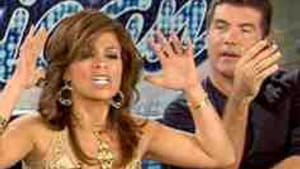Stay in the Loop
BSR publishes on a weekly schedule, with an email newsletter every Wednesday and Thursday morning. There’s no paywall, and subscribing is always free.
Who critiques the critics?
Directors vs. Critics: BSR's debate (2nd comment)

At Broad Street Review's recent symposium on the role of critics in Philadelphia, the Lantern Theater's artistic director Charles McMahon eloquently raised the notion that no one polices this town's posse of critics. If a theater company puts on a bad production, he argued— to his credit, acknowledging that there's plenty of bad theater in Philadelphia— "the company suffers a loss in terms of ticket sales, funding and subscribership." On the other hand, "Critics do not pay any penalty for being wrong" or for overstepping their bounds (on those, you know, rare occasions).
How McMahon—or anyone—would define when and in what manner a critic gets an aesthetic judgment "wrong" I will leave for him to address. But I sympathize with his argument. On many occasions, I have read the reviews of critics at BSR and elsewhere and wondered— like many an audience member— did they see the same show I did?
On some occasions, I have written e-mails to privately call out my colleagues. At other times, I've submitted rebuttal reviews to BSR. BSR's editor, Dan Rottenberg, has, on many occasions, posted critiques of my articles and other writers that Dan himself has posted on BSR. To me, this approach represents one possible form of policing.
The New York model
A perusal of reviews by New York critics in the 1950s and '60s reveals that many so-called reviews consisted of little more than a vitriolic rebuttal of the pan penned by another writer, followed by a response, and so on. No doubt such an adversarial environment would enjoy a bloodthirsty and vocal—though perhaps smaller—readership among theatergoers. But I do wonder who else would benefit from such repeated rancor.
The "family outing" and occasional theatergoing crowd would gain little in terms of helping them select which shows to see and how best to understand and appreciate them. And in order to discern any appraisal of new works and productions, the theater companies would first need to wade through the critics' personal bickering. Moreover, in such a setting, a critic's virtues would quickly devolve from honesty, clarity of thought and considered judgment to cheap wit and verbal gamesmanship.
Cowell and Abdul
For my part, I consider theater criticism too important to the conversation about the art form to help it degenerate into a mere exercise in self-aggrandizement— or worse, the (admittedly entertaining) parries and thrusts between Simon Cowell and Paula Abdul on "American Idol."
To be sure, I'd welcome a greater dialogue about my reviews and essays. But if I wanted anyone to call me out on my writing, it wouldn't be a fellow critic, but a dedicated reader. Especially in the Internet age, we critics are policed by the same people who police theaters: the audience. So please, reader— police me.♦
To read a related comment by Jackie Atkins, click here.
To read a related comment by Dan Rottenberg, click here.
How McMahon—or anyone—would define when and in what manner a critic gets an aesthetic judgment "wrong" I will leave for him to address. But I sympathize with his argument. On many occasions, I have read the reviews of critics at BSR and elsewhere and wondered— like many an audience member— did they see the same show I did?
On some occasions, I have written e-mails to privately call out my colleagues. At other times, I've submitted rebuttal reviews to BSR. BSR's editor, Dan Rottenberg, has, on many occasions, posted critiques of my articles and other writers that Dan himself has posted on BSR. To me, this approach represents one possible form of policing.
The New York model
A perusal of reviews by New York critics in the 1950s and '60s reveals that many so-called reviews consisted of little more than a vitriolic rebuttal of the pan penned by another writer, followed by a response, and so on. No doubt such an adversarial environment would enjoy a bloodthirsty and vocal—though perhaps smaller—readership among theatergoers. But I do wonder who else would benefit from such repeated rancor.
The "family outing" and occasional theatergoing crowd would gain little in terms of helping them select which shows to see and how best to understand and appreciate them. And in order to discern any appraisal of new works and productions, the theater companies would first need to wade through the critics' personal bickering. Moreover, in such a setting, a critic's virtues would quickly devolve from honesty, clarity of thought and considered judgment to cheap wit and verbal gamesmanship.
Cowell and Abdul
For my part, I consider theater criticism too important to the conversation about the art form to help it degenerate into a mere exercise in self-aggrandizement— or worse, the (admittedly entertaining) parries and thrusts between Simon Cowell and Paula Abdul on "American Idol."
To be sure, I'd welcome a greater dialogue about my reviews and essays. But if I wanted anyone to call me out on my writing, it wouldn't be a fellow critic, but a dedicated reader. Especially in the Internet age, we critics are policed by the same people who police theaters: the audience. So please, reader— police me.♦
To read a related comment by Jackie Atkins, click here.
To read a related comment by Dan Rottenberg, click here.
What, When, Where
“Theater People vs. Theater Critics.†Debate sponsored by Broad Street Review. Bernard Havard, Charles McMahon, Seth Rozin, Gresham Riley, Robert Zaller, Jim Rutter; Dan Rottenberg, moderator. May 26, 2011 at Franklin Inn Club, 205 S. Camac St.
Sign up for our newsletter
All of the week's new articles, all in one place. Sign up for the free weekly BSR newsletters, and don't miss a conversation.

 Jim Rutter
Jim Rutter